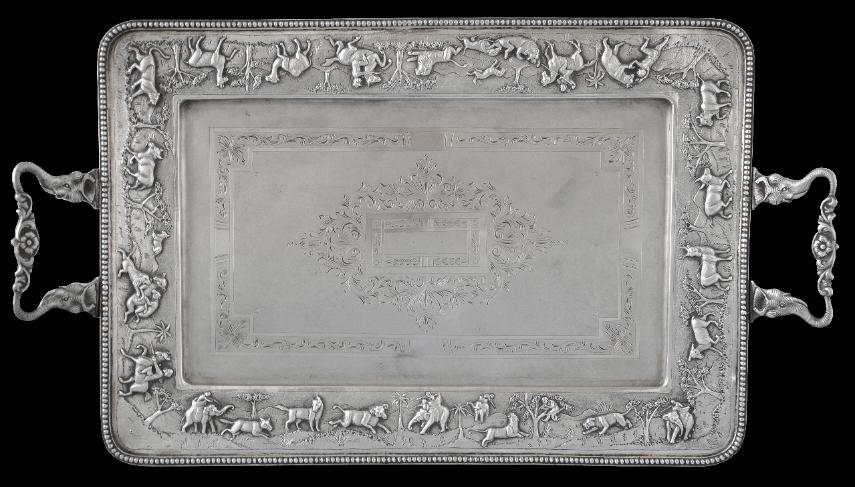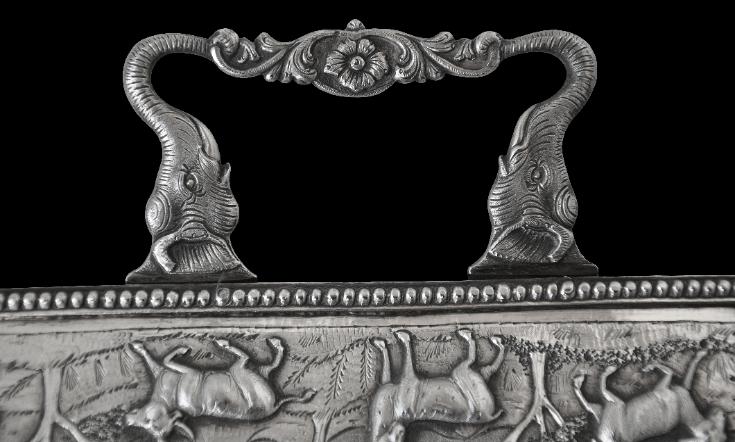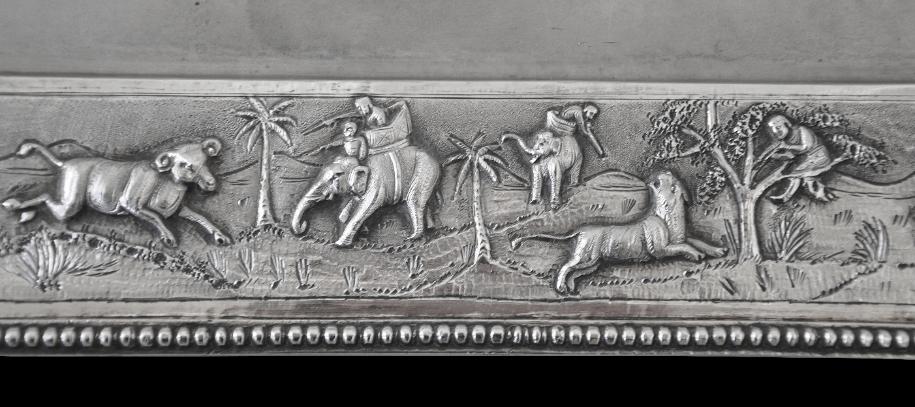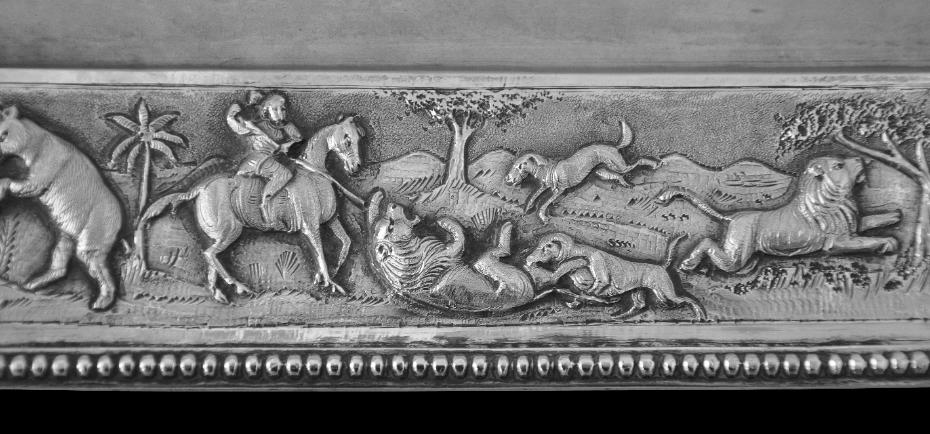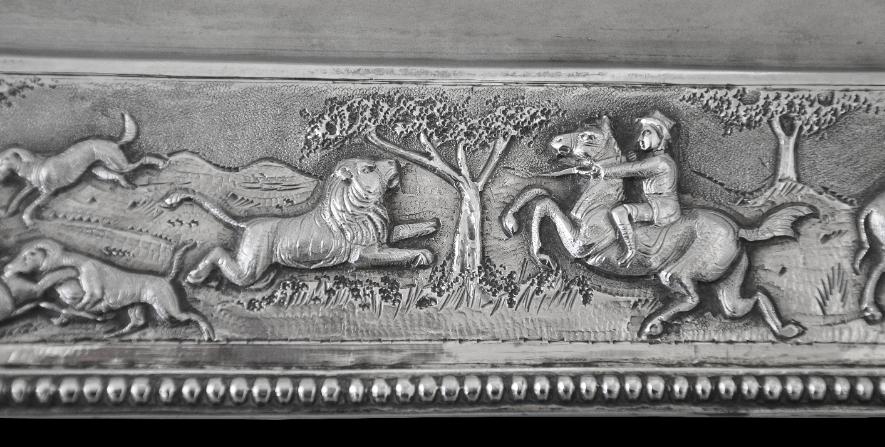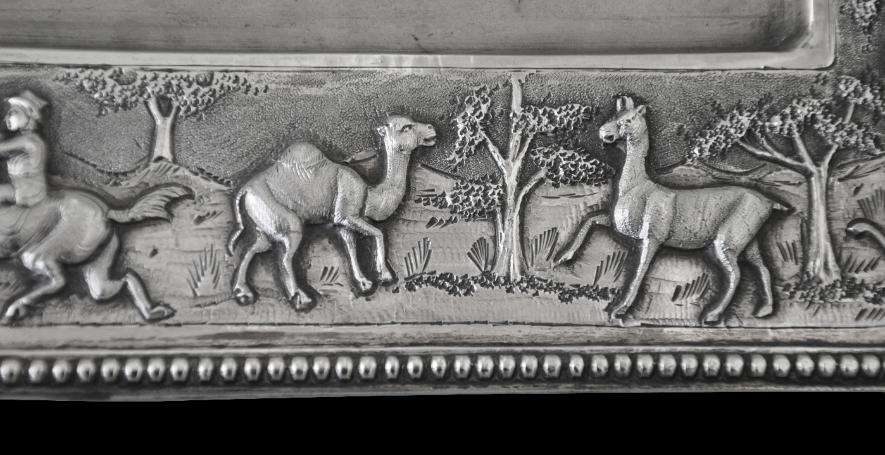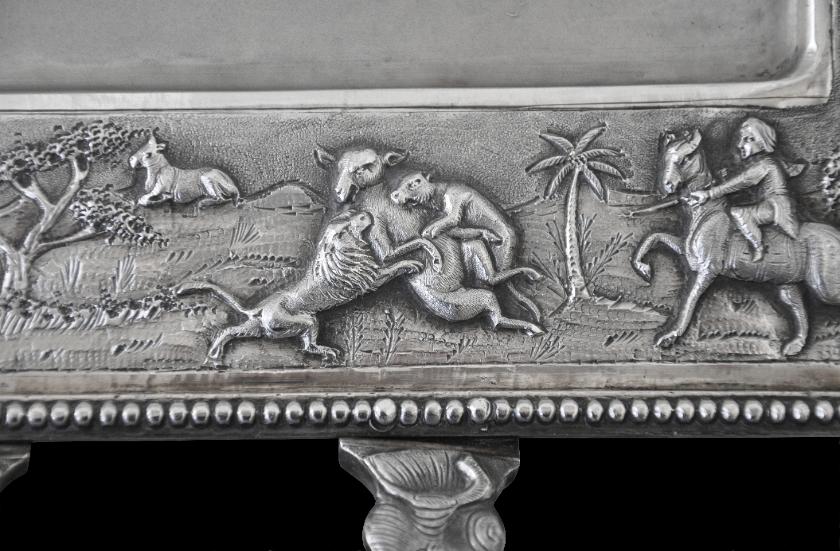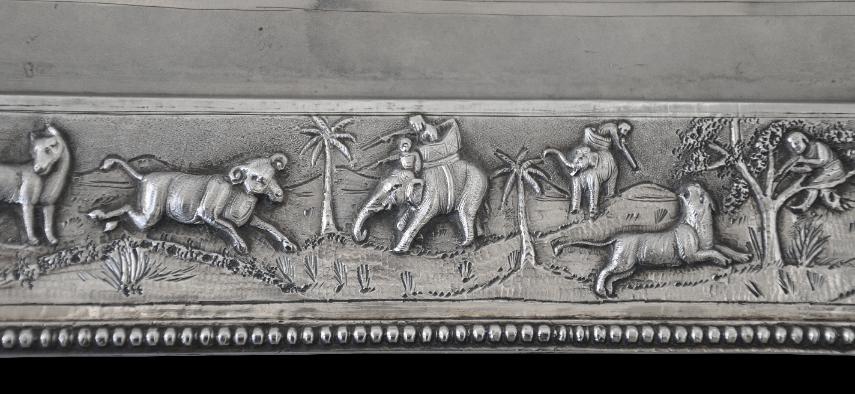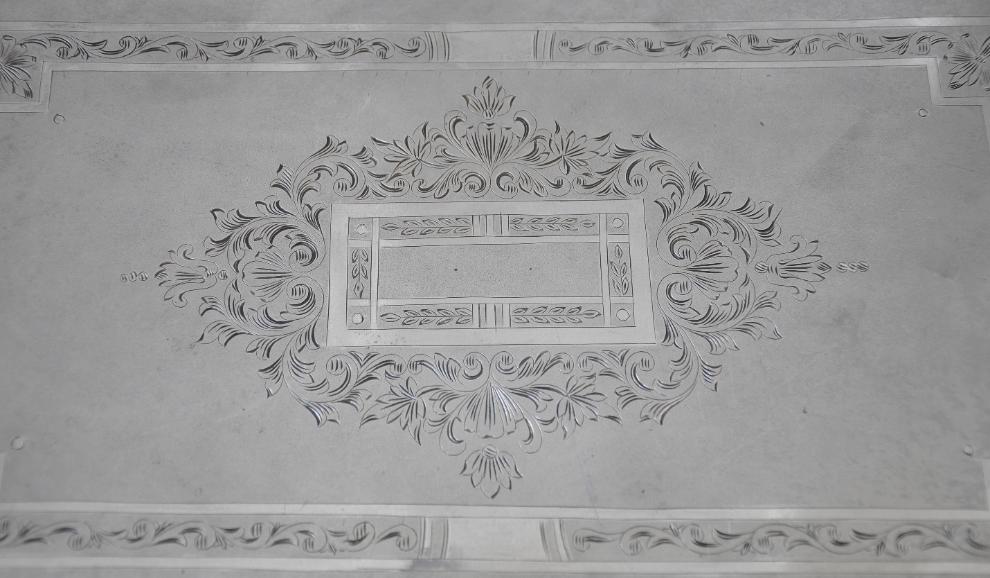
Bombay Colonial Indian Silver Tray
Large & Fine Silver Tray
Bombay, India
circa 1900
length: 51.5cm, width: 28.6cm, weight: 1,500g
This very high-quality solid silver tray is from colonial Bombay. The form – a blend of European with the Indian – and the motifs – a border of Indian scenes in repousse and then a late Victorian European engraved middle section amply demonstrates the cross-cultural synthesis typical of colonial Indian silverwork. Indeed, the blend of styles is symptomatic of Bombay silver itself: silversmiths, like the population generally, poured into Bombay from many parts of India so that silver in almost every style was being produced there.
With the opening of the Suez Canal in 1669, Bombay boomed and the city’s silversmiths became important suppliers not just to local merchants and administrators but also to foreign retailers such as Liberty & Co in London.
The tray is edged with a pearled silver border. The rim is slightly raised and finely decorated with hunting scenes. The handles at either end are splendid confections of Indian baroque – well-cast and engraved elephant heads holding floral and leafy flourishes between their trunks. The central panel is engraved with a geometric and leafy pattern against a finely tooled ground.
The tray sits of four low rounded feet. There is no maker’s mark. The tray has no dents, splits or repairs. Some surface scratches are visible to the top consistent with age and use. Overall, the tray is an excellent example of Bombay silverwork.
References
Dehejia, V., Delight in Design: Indian Silver for the Raj, Mapin, 2008.
Provenance
UK art market
Inventory no.: 1347
SOLD

